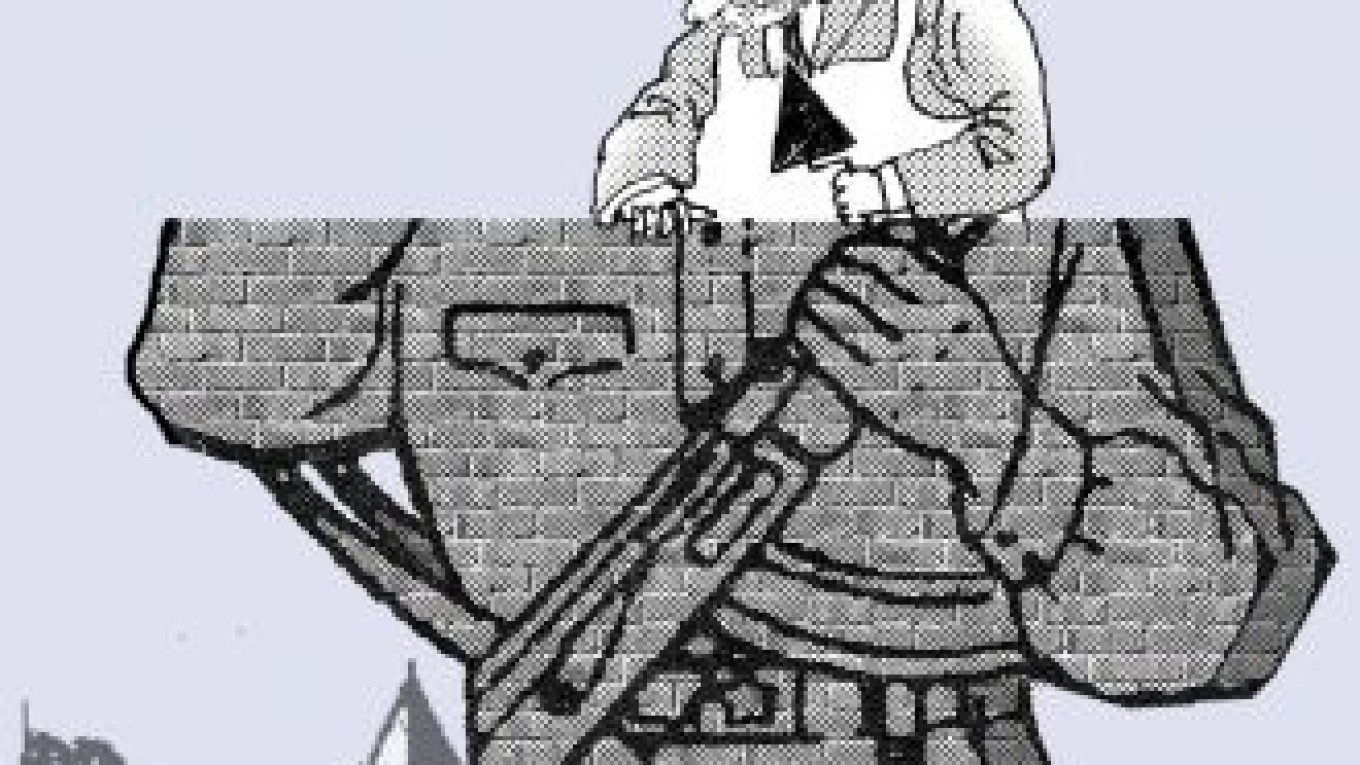Last month marked four years since the once little-known Anatoly Serdyukov was unexpectedly named defense minister. At the time, most observers assumed that the former tax official’s main mission would be to put the military’s financial affairs in order. Defense spending had risen continuously in the first half of the 2000s without producing any tangible results, and Serdyukov’s predecessor, Sergei Ivanov, had declared military reforms to have been completed. But within 18 months of becoming defense minister, Serdyukov understood the need for radical reforms, having seen for himself just how far the armed forces had deteriorated — a conclusion that was made even clearer after the army’s disappointing performance in the Russia-Georgia war of August 2008.
In short, Serdyukov’s reforms aim to eliminate the Soviet army and build up a modern one in its place. The new army must be able to meet the new threats to Russia’s security while compensating for the country’s diminished economic and demographic realities. There is a clear unspoken understanding that a large-scale war with NATO or China is not only unlikely for political reasons, but that Russia lacks the resources to fight such a conventional war anyway. All parties concerned know perfectly well that were such a conflict to erupt, Moscow would be forced to rely on its nuclear deterrent.
At the same time, there is a growing danger of local and regional conflicts breaking out. All of the former Soviet republics except the Baltic states face threats of separatism and inter-ethnic conflicts, as well as by unstable and authoritarian regimes. Russia cannot ignore and must become involved in most of these conflicts, as it was forced to do in August 2008.
These are the types of conflicts for which Serdyukov’s army must prepare itself. What’s more, the army is already involved in this type of conflict in the North Caucasus, where ethnic separatist uprisings and almost daily terrorist attacks have turned the region into a virtual war zone.
Serdyukov’s military reforms essentially continue the political and economic reforms of the 1990s while responding to the current leadership’s call for modernization. Those reforms might well be the largest project of the last decade related to matters of state, with the possible exception of the moderately successful attempt to pacify Chechnya. In a wider military and historical context, the reforms being carried out by Serdyukov and Nikolai Makarov, chief of the General Staff, are the most radical and profound transformation the army has undergone since at least the time of Leon Trotsky and Bolshevik leader Mikhail Frunze.
What is particularly interesting is how Russia’s leadership has reacted to these military reforms. The Kremlin and White House, which are usually careful to avoid any action that could spark social unrest or upset the status quo bureaucracy, have given strong support to Serdyukov despite widespread criticism and hysterical opposition from members of the military establishment.
That support has been shown in both political and financial form. Even during the most difficult period of the 2009 economic crisis, financing these reforms remained a top budgetary priority. Moreover, judging from recently announced plans to supply the armed forces with modern equipment and to meet the legal obligation of providing apartments to all retiring officers, that support will continue into the future.
The real question is how long that political and financial support will continue. Perhaps it is the fear that the reforms could be undermined or derailed that prompted reformers to push the changes through with such rapidity.
As reformer Sergei Witte, prime minister of imperial Russia in 1905-06, once said: “In Russia, reforms must be carried out quickly and in great haste. Otherwise, most will either fail or falter.”
Ruslan Pukhov is director of the Center for Analysis of Strategies and Technologies and publisher of the journal Moscow Defense Brief.
A Message from The Moscow Times:
Dear readers,
We are facing unprecedented challenges. Russia's Prosecutor General's Office has designated The Moscow Times as an "undesirable" organization, criminalizing our work and putting our staff at risk of prosecution. This follows our earlier unjust labeling as a "foreign agent."
These actions are direct attempts to silence independent journalism in Russia. The authorities claim our work "discredits the decisions of the Russian leadership." We see things differently: we strive to provide accurate, unbiased reporting on Russia.
We, the journalists of The Moscow Times, refuse to be silenced. But to continue our work, we need your help.
Your support, no matter how small, makes a world of difference. If you can, please support us monthly starting from just $2. It's quick to set up, and every contribution makes a significant impact.
By supporting The Moscow Times, you're defending open, independent journalism in the face of repression. Thank you for standing with us.
Remind me later.


